Intro
Magnesium oxide, a naturally occurring mineral compound, has been utilized for various purposes across different industries due to its unique properties. Its applications range from health supplements to industrial manufacturing, showcasing its versatility and importance. Understanding the uses of magnesium oxide can provide insights into its benefits and potential applications in everyday life.
The significance of magnesium oxide lies in its chemical composition and properties. As a compound of magnesium and oxygen, it exhibits high reactivity, making it a valuable component in numerous chemical reactions and applications. Furthermore, its ability to withstand high temperatures without decomposing adds to its utility in high-temperature processes. This multifaceted nature of magnesium oxide has led to its widespread adoption in various sectors.
In the realm of health and wellness, magnesium oxide is often used as a dietary supplement. Magnesium is an essential mineral for the human body, playing a critical role in muscle and nerve function, blood glucose control, and blood pressure regulation. Many individuals consume magnesium oxide to address magnesium deficiency, which can lead to symptoms such as muscle cramps, fatigue, and weakness. Its use as a supplement highlights the importance of magnesium in maintaining overall health.
Magnesium Oxide in Health Supplements
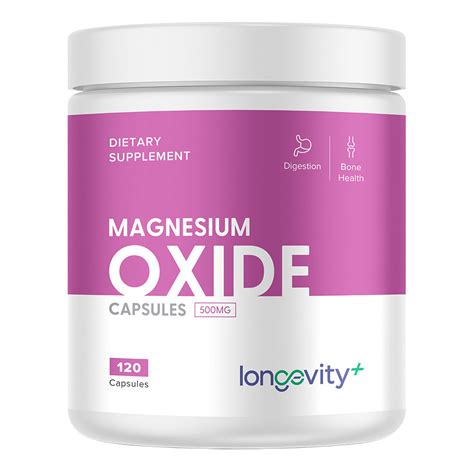
The incorporation of magnesium oxide in health supplements is due to its high elemental magnesium content, which makes it an effective source of magnesium for the body. However, it's worth noting that the bioavailability of magnesium from magnesium oxide can vary, and other forms of magnesium, like magnesium citrate or magnesium glycinate, might be more easily absorbed by the body. Despite this, magnesium oxide remains a popular choice for supplementation due to its cost-effectiveness and widespread availability.
Industrial Applications of Magnesium Oxide
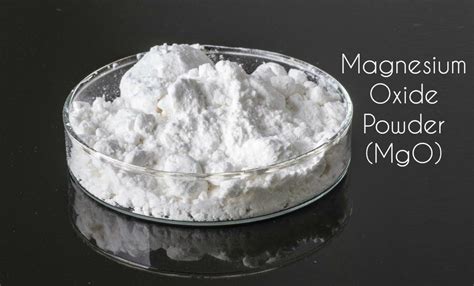
Beyond health supplements, magnesium oxide has significant industrial applications. It is used in the production of cement and mortar, serving as a refractory material due to its ability to withstand extremely high temperatures. This property makes it invaluable in the steel industry, where it is used in the lining of steel furnaces and crucibles. Additionally, magnesium oxide is utilized in the manufacture of insulation, refractory linings, and other heat-resistant materials, further demonstrating its versatility.
Refractory Applications
The refractory applications of magnesium oxide are particularly notable. Its high melting point and resistance to thermal shock make it an ideal material for environments where extreme temperatures are common. This includes not only the steel industry but also in the production of ceramics, glass, and other materials that require high-temperature processing.Environmental Applications
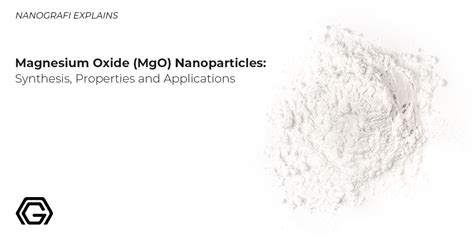
Magnesium oxide also plays a role in environmental applications, particularly in water treatment. It can be used to neutralize acidic waters and to remove heavy metals and other pollutants from water, contributing to water purification efforts. Its use in this context underscores the potential of magnesium oxide to contribute to sustainable practices and environmental protection.
Water Treatment Processes
In water treatment, magnesium oxide can act as a coagulant or as a component in chemical precipitation processes, helping to clarify water and remove harmful substances. This application highlights the chemical reactivity of magnesium oxide and its ability to interact with and neutralize harmful contaminants, making it a valuable tool in environmental remediation.Agricultural Uses
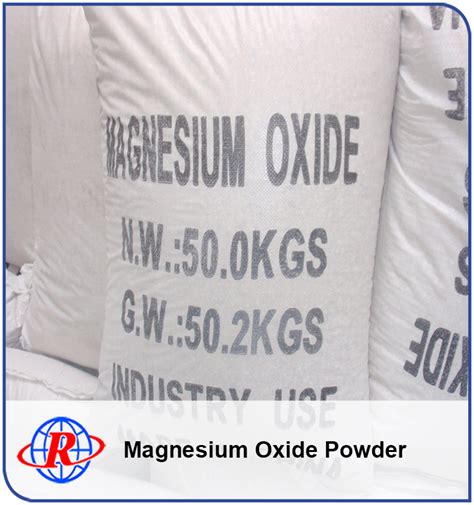
In agriculture, magnesium oxide is used as a source of magnesium for plants, which is essential for photosynthesis and the overall health of crops. It can be applied as a fertilizer or soil amendment to address magnesium deficiency in soils, which can lead to reduced crop yields and plant diseases. This application demonstrates the critical role of magnesium oxide in supporting agricultural productivity and food security.
Soil Amendments
As a soil amendment, magnesium oxide helps in adjusting the pH of acidic soils and providing magnesium ions necessary for plant growth. Its solubility in water allows it to be easily absorbed by plant roots, making it an effective means of correcting magnesium deficiencies in crops. This use of magnesium oxide in agriculture not only improves soil health but also contributes to more sustainable farming practices by enhancing crop resilience and reducing the need for synthetic fertilizers.Pharmaceutical Applications
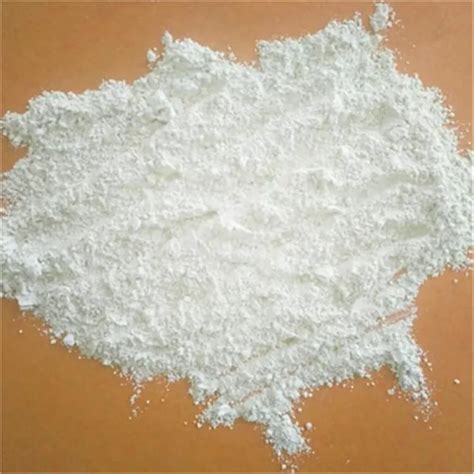
In the pharmaceutical industry, magnesium oxide is used as an excipient in the formulation of various medications. It can act as a filler, binder, or coating agent, helping to stabilize the active ingredients, improve the drug's bioavailability, and enhance the overall efficacy of the medication. This application showcases the versatility of magnesium oxide beyond its use as a health supplement, highlighting its role in the development of pharmaceutical products.
Drug Formulation
The use of magnesium oxide in drug formulation is significant due to its inertness and compatibility with a wide range of active pharmaceutical ingredients. It can be used to improve the flowability of powders, enhance the compressibility of tablets, and control the release of active ingredients, thereby contributing to the development of more effective and reliable medications.Food Industry Applications
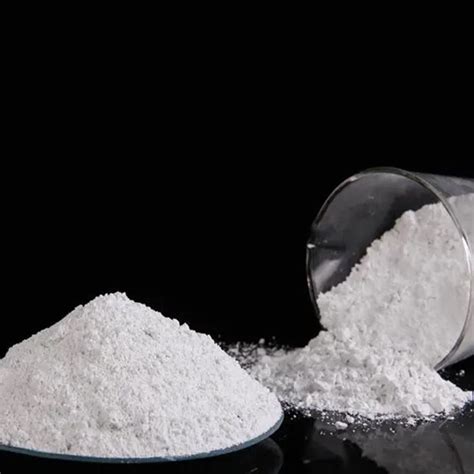
In the food industry, magnesium oxide is used as a food additive, serving as an anti-caking agent, a nutrient supplement, or a pH stabilizer. It is commonly found in products such as milk of magnesia, where it acts as a laxative, and in mineral waters, where it contributes to the mineral content. This application of magnesium oxide in food products underscores its safety and utility as a food additive.
Food Additives
As a food additive, magnesium oxide must meet strict purity standards to ensure consumer safety. Its use in food products is regulated by food safety authorities, which set limits on the amount of magnesium oxide that can be added to different types of food. This regulatory oversight highlights the importance of ensuring the quality and safety of magnesium oxide when it is used in the food industry.To further understand the applications and implications of magnesium oxide, it's essential to consider the broader context of its use. This includes examining the environmental impact of its production, the health benefits and risks associated with its consumption, and the regulatory frameworks that govern its use in different industries.
In conclusion, the uses of magnesium oxide are diverse and widespread, reflecting its unique chemical and physical properties. From health supplements to industrial applications, environmental remediation, agriculture, pharmaceuticals, and the food industry, magnesium oxide plays a significant role. Its importance underscores the need for continued research into its properties and applications, as well as careful consideration of its potential impacts on human health and the environment.
As we move forward, it will be interesting to see how the applications of magnesium oxide evolve, particularly in light of emerging technologies and growing concerns about sustainability and environmental protection. Whether through its use in innovative industrial processes, its role in enhancing crop yields, or its contribution to the development of new pharmaceutical products, magnesium oxide is likely to remain a vital component in a wide range of industries and applications.
What are the primary uses of magnesium oxide?
+Magnesium oxide is used in health supplements, industrial applications, environmental remediation, agriculture, pharmaceuticals, and the food industry, among others.
Is magnesium oxide safe for consumption?
+Yes, magnesium oxide is generally considered safe for consumption when taken as directed. However, excessive intake can lead to gastrointestinal side effects.
What are the benefits of using magnesium oxide in agriculture?
+The use of magnesium oxide in agriculture helps to address magnesium deficiency in soils, improve crop yields, and enhance plant health, contributing to more sustainable farming practices.
We invite you to share your thoughts on the applications of magnesium oxide and its potential to contribute to a more sustainable future. Whether you're interested in its health benefits, industrial uses, or environmental applications, your insights can help shed light on the importance of this versatile compound. Please feel free to comment, share this article, or explore further resources to learn more about magnesium oxide and its many uses.
